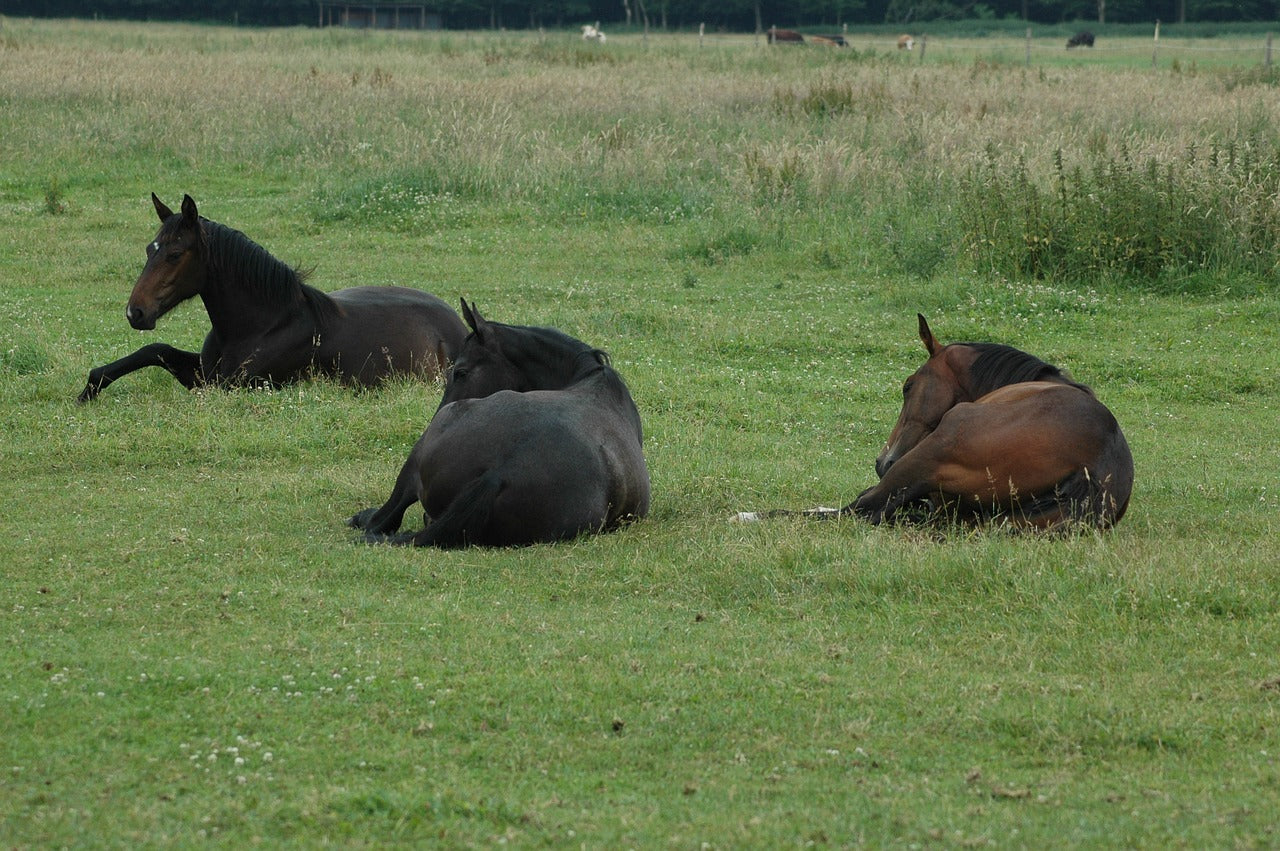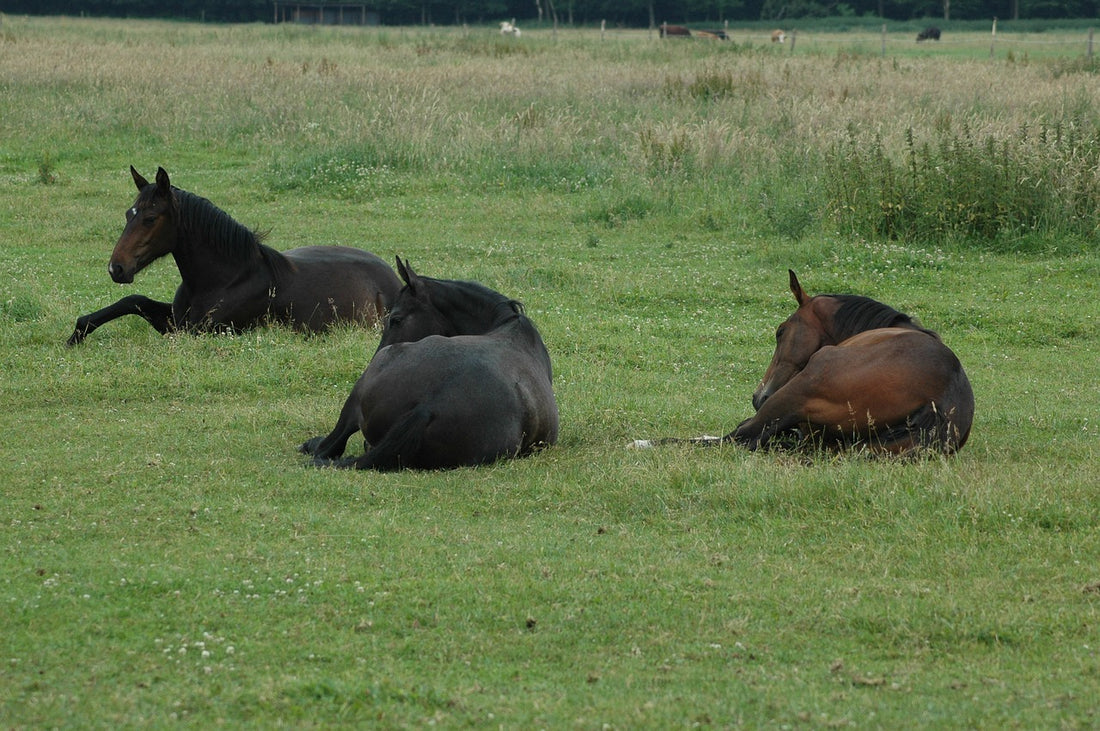It can be difficult to monitor how much sleep your horse is getting. Unlike people who tend to get all of the sleep they need each 24-hours in one lengthy snooze, horses are polyphasic. This means that they sleep multiple times through the day and night.
Types of Sleep
Typically an adult horse will sleep for 2 to 5 hours in each 24-hour period. Foals will sleep for longer. Horses spent much of that time in slow-wave sleep (SWS). This is like dozing and horses can sleep in this way whilst standing up as the equine anatomy has evolved to accommodate this. But horses also need a period of Rapid Eye Movement (REM) sleep and to achieve this state they need to lie down.
Research into Equine Sleep
We are yet to fully understand the sleep requirements of horses. There has been only limited research into equine sleep and more is certainly required. But some facts have been established:
- Horses devote approximately 5-7 hours each day to resting behaviour with actual sleep usually occurring at night.
- Horses are able to achieve slow-wave sleep whilst standing up but the REM stage of sleep cannot be reached without being recumbent due to the greater loss of muscle tone during this type of sleep.
- In each period of 24 hours, horses need at least 30 minutes of recumbency in order to fulfil their needs for REM sleep.
Equine REM Sleep
In order to enter REM sleep, a horse must feel safe and have a suitable place to lie down. Equines don't lie down for long periods of time because blood flow to certain areas of their bodies becomes restricted and this leads to problems in getting up again. Horses tend to lie down for a maximum of 45 minutes and to experience REM sleep for roughly 20 minutes. Unsuitable conditions such as adverse weather and lack of space will prevent horses from lying down as will physical issues including lack of joint mobility. If a horse does not enjoy sufficient REM sleep it will suffer the effects of sleep deprivation including lethargy and excessive drowsiness. Horses which find it difficult to lie down for any reason may enter REM sleep whilst standing and then partially collapse before waking suddenly.
Dealing with Sleep Deprivation
Horses can go several days without REM sleep before the effects become noticeable. If your horse shows signs of sleep deprivation, think about why he may not be sleeping. There are a variety of reasons which you should consider and address: Isolation - a horse kept alone is likely to be stressed and feeling vulnerable An unsuitable place to lay - a lack of bedding or too small an area Noisy location - loud noises may trouble your horse Feeling unsafe outdoors - there may be wild animals around that make your horse feel exposed Social situation - an aggressive horse or a new herd could make your horse feel vulnerable


